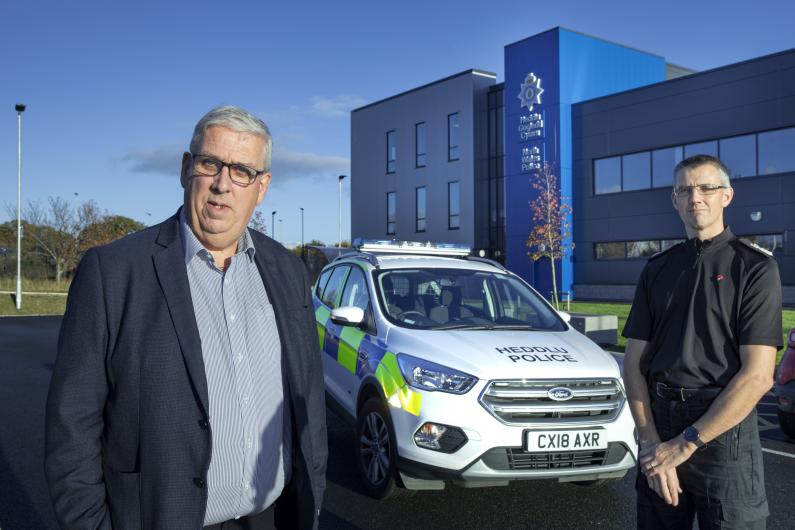Date

North Wales Police have been hailed as a role model for the rest of the UK’s forces in the way they investigate serious road crashes and their use of high-tech methods including drones.
The region’s police and crime commissioner, Arfon Jones, said he was proud they had been named as the lead force for a new accreditation system after setting the “gold standard” for forensic investigations.
The constabulary has received extra funding of £2 million to head up the new Forensic Collision Investigation Network as the host force.
The aim is to get all 43 forces accredited by October 2022 and North Wales Assistant Chief Constable has been appointed as the lead officer for the initiative.
It was, said Mr Jones, vitally important that the investigations were conducted properly to ensure justice was done, particularly for the victims of road crashes and their families.
Mr Jones, a former police inspector, added: “I am very proud that North Wales Police are taking the lead in this important initiative to ensure we don’t have a postcode lottery in terms of the quality of the forensic investigations.
“The excellence of the investigations in North Wales is not something that has happened overnight.
“It is testament to the skill and dedication of our officers over a number of years improving how we operate.
“Sacha Hatchett is an excellent and hugely capable Assistant Chief Constable, so she is the perfect choice as the lead officer for the initiative.
“The families of victims deserve to have investigations carried out to the highest possible standard. People being killed or injured on our roads is a crime and that crime deserves to be properly investigated, just like investigations into assaults, rapes or homicides.
“Victims who are killed or injured on the roads deserve the same level of competent police investigation as everybody else.
“In North Wales they’re getting the gold standard in terms of forensic investigation and hopefully we’ll bring everybody in England and Wales up to our level.”
It was a sentiment echoed by Chief Constable Carl Foulkes who said: “This is a brilliant new concept really for policing where we’re trying to bring all forces across the UK together to have a consistent accredited approach to how we investigate collisions on our roads.
“The fact we were approached to lead for the work demonstrates the strength of our forensics approach and also the quality of our forensic investigations.
“It’s a really complex discipline to understand what has actually caused serious injuries or the loss of somebody’s life and we want to make sure we give the very best service.
“We use the latest technology to scan the scenes and drones are being used more and more to assess the road to understand what occurred and who is responsible for it.
“I’ve got a fantastic lead in ACC Sacha Hatchett and she is supported by an incredible team within the forensics department who time and again amaze me about what they do. They punch well above their weight for a force of our size.”
ACC Hatchett said: “It's really important work because this is about the investigation of deaths and serious collisions on our roads.
“It is right that our staff is trained to the appropriate level so they can fulfil their responsibilities, whether it be through the criminal justice system or through the coroner’s court, to give confidence to the community that we are thorough and we are professional in the investigation of such collisions.
“We have got approximately 350 people across 43 forces who are forensic collision investigation officers who do a really challenging and specialist role.
“I'm hoping that with their support we will take forensic collision investigation on to the next level.
“We believe that a networked approach to this kind of science is something that could be replicated in other areas of policing, so hopefully we set a blueprint for how we can do some of our business in the future.”